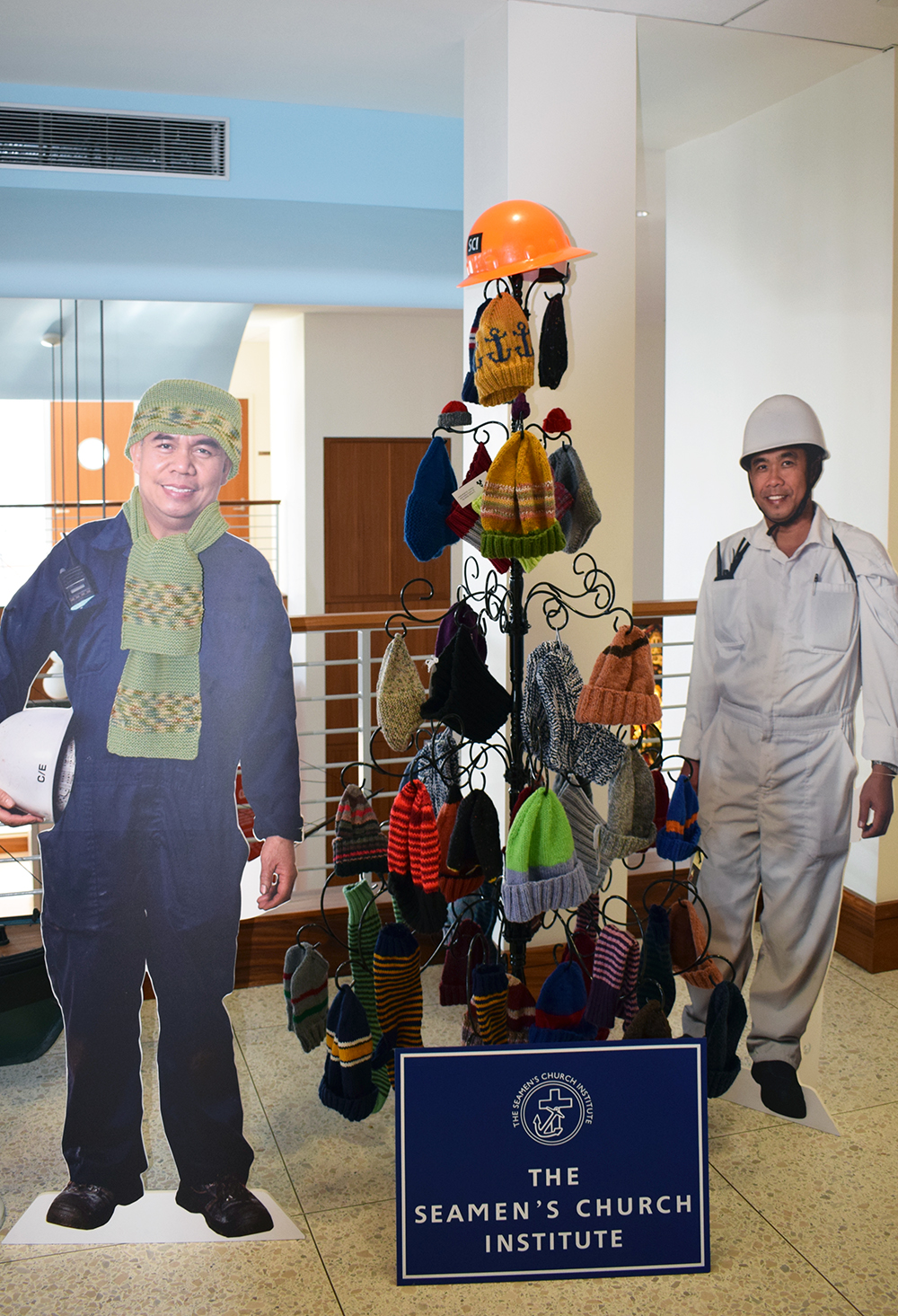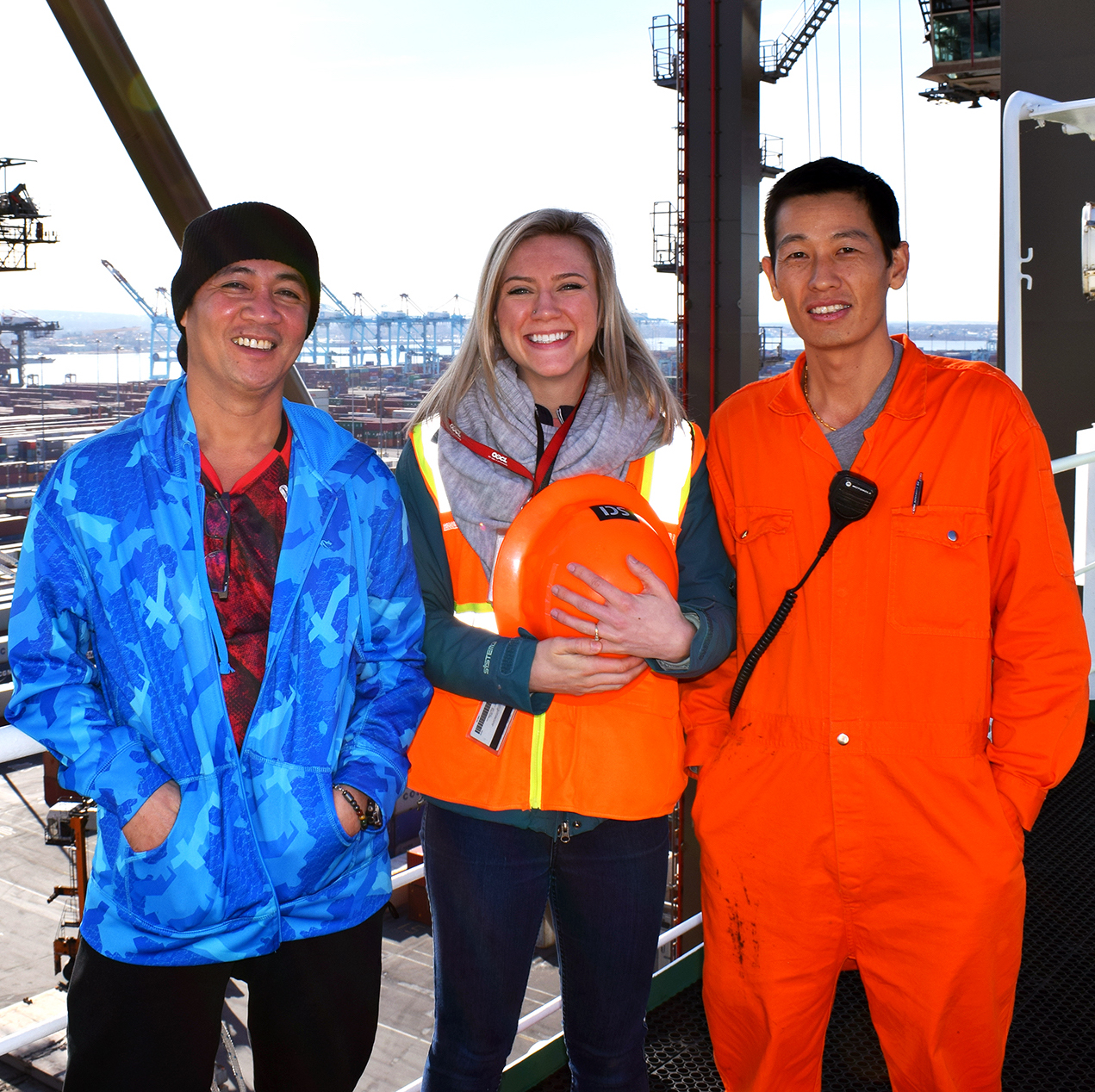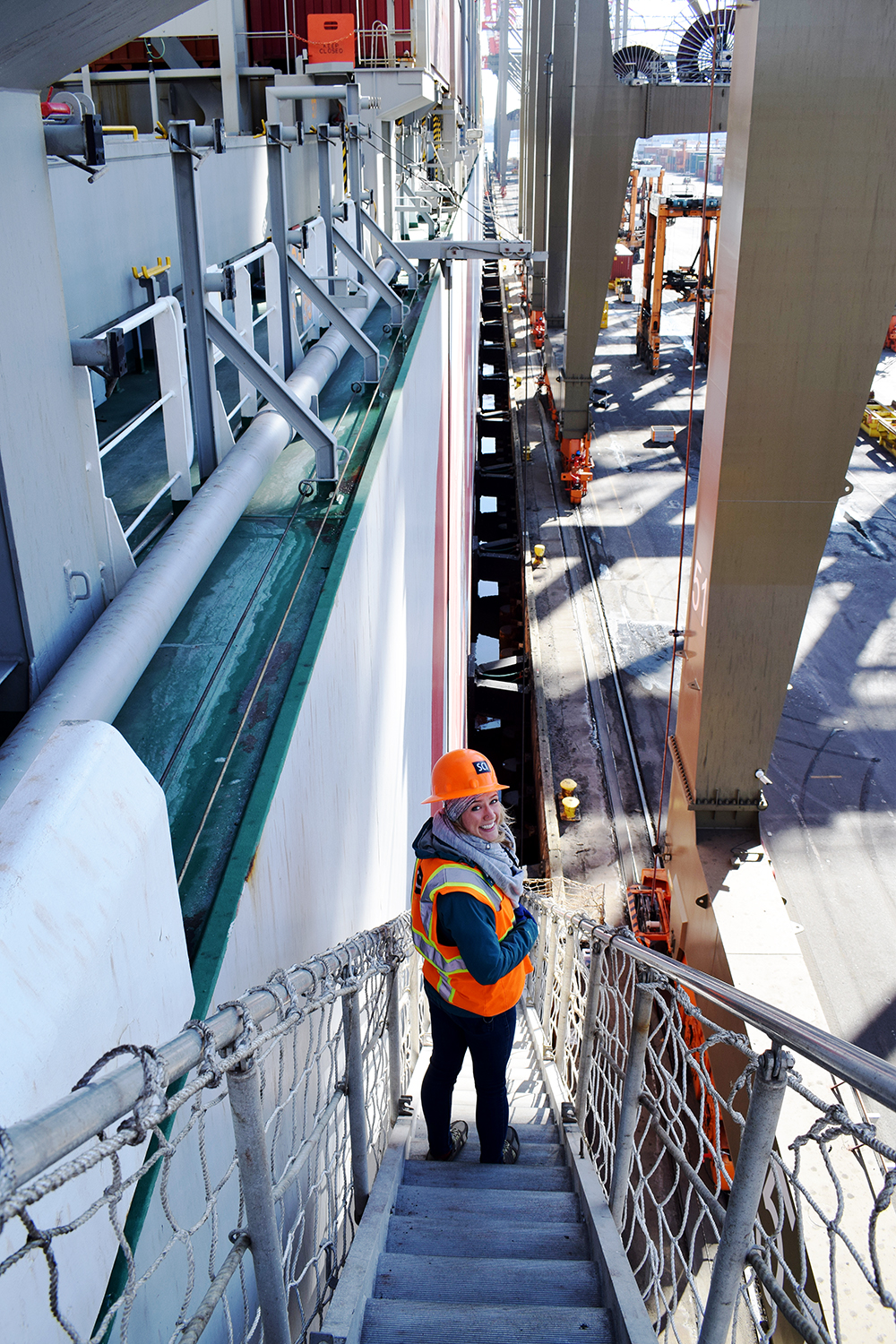Field education at Union provides an opportunity for students to bring together their education, skill, and religious commitment in a way that can help them discover their call. Students do their field work in a wide variety of locations, from churches to shelters to non-profit organizations.

Cora Koehler, a third-year M.Div. student, works in a very unique field location as a chaplain at the Seamen’s Church Institute (SCI). Founded in 1834 on the Manhattan docks, SCI is now based in Port Newark and Port Elizabeth, NJ and is North America’s largest mariners’ service agency. Koehler spoke with us recently about her work.
What’s your day like?
Days start by seeing what ships are in. We divide them up between the three of us who are here as ship visitors. Usually I visit anywhere between 2-5 ships a day. If I’m only visiting two ships, I can usually spend 2-3 hours on a ship and then you really get to see a lot of the crew.
What do you do with the crew?
You never know when you’re getting on the ship what type of visit you’re going to get. SCI provides professional and spiritual care to crew in a variety of ways. Once on board, I explain basic services that the Seamen’s Church Institute has to offer: SIM cards, Wi-Fi access. But, we’re also there to simply talk to the crew.

Interactions really vary. A lot of times it’s just really helpful for the crew to see a new face; they’ve been on a journey for anywhere from 20-40 days, and when you’re with the same 20 people for that long, the same story about your daughter gets old. So, to be able to see someone new, they get so excited: “You’re not going to believe it, my daughter just learned how to ride a bike.” The amount of joy in a crew member’s face, being able to share that, is unbelievable. They’re able to create and share what they’re missing out on at home.
Other times it’s very mundane; we’re helping them activate SIM cards so they’re able to call home, or to browse what’s happening in the news. But then, when we do give out a SIM card and they’re able to call home, sometimes they find out that someone has passed away during their journey at sea, and they had not heard. So, we also try to create space for people to hear poor news as well, and to have conversations and hold that with them. A seaman’s life is so variable and changing all the time that quick connections are easy to make. They know that I’m only there for a certain amount of time, and when I’m gone, I’m gone. So often there’s an emptying of what they carried on their journey.
How has Union helped you in this job?
I wasn’t happy with my first field site, but Dr. Pak within a week had a new site for me. She was able to see where things weren’t working at my past field site, and found a place that would work. Dr. Pak was such an advocate in setting this up, because this is such an unexpected place to be in. And I really value the support that I receive at Union to process the different types of interactions that happen on the ship.
Also, much of my coursework has focused around psychoanalysis, around grief work, and it’s actually been really cool to apply a lot of the grief theories I learned at Union to the fear of missing out that happens for the people who work on ships, as well as when there are losses at home. I’m really able to show up and talk about it.
How has this affected your sense of pastoral authority?

When I started working here, it’s easy to feel very small in the port. There are huge trucks, and these ships are unbelievably large. Driving around the terminals, everything is just gigantic, and I’m just a person. But being able to get on these ships, and make meaningful connections with people—starting a conversation with a handshake and ending it with a hug in a matter of an hour—has shown me an ability to show up and be present for people that I didn’t realize I had. It also has taught me that sometimes the way we live our ministry doesn’t have to be through reading texts of the Bible, it doesn’t have to be through what we learn in a Church lectionary. Rather, it can be just showing up and being there for people, and really being present.
When I graduate in May, I’m a lot more hopeful for getting jobs because I know that I’m able to make connections and create meaningful things in non-profit settings, not just in strictly religious spaces.
What has this job taught you about yourself?
It’s been really wonderful for my personal self-growth ….when I first started here, I was really afraid to drive in the port—because of the feeling of being so small. I was afraid to just walk on a ship and say, “This is who I am, and this is what I’m here to do.” It’s given me a real sense of authority, that I can come with a service and provide it. It’s also taught me that if I thoroughly plan the ship visit, it never goes that way. I’m a lot more open minded, I just show up ready for whatever is going to unfold. So that’s been incredible, to be able to let go. Now I know I can let go of everything else in my life, and just show up as a chaplain to the people here. That’s been really liberating—to know my role and to be good at it.
What has working at the port taught you about humanity?
No matter how difficult the language barrier is—no matter how thick my Chicago-Jersey accent or a crew member’s accent—we’re able to make a connection because we want to. If a lot of other people in the world were able to be present for each other like that, the world would be a much better place. It makes me really hopeful.
How has this position affected your faith?
Working at the port has reinforced how we’re all of the same essence, that no matter how we try to break that, it’s impossible. Being able to get on ships with people who are very different from me—different lives, different stories, different cultures, different countries—it’s been a reminder of how close we are. No matter where we come from, we’re very much the same. Our goal at SCI is not to proselytize, not to talk about Jesus unless a crew wants to. But oftentimes I find that when people are talking about God, they’re talking about their families—it’s the guys face who lights up when he found out his daughter learned to ride a bike, a guy who shows me a picture of his wife, we see God through that love.
To learn more about the Seamen’s Church Institute, visit seamenschurch.org.
